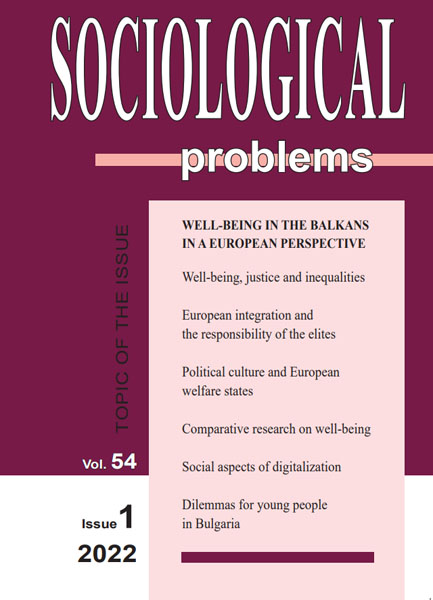“Freedom From...” And “Freedom To...”: Two Sides of the Same Coin for Civil Society and the Current Challenges of the European Welfare States
“Freedom From...” And “Freedom To...”: Two Sides of the Same Coin for Civil Society and the Current Challenges of the European Welfare States
Author(s): Andrea Walter, Klaus SchubertSubject(s): Social Sciences, Sociology, Social differentiation, Social Theory, Social Informatics, Sociology of Politics, Globalization, Identity of Collectives
Published by: Институт по философия и социология при БАН
Keywords: European welfare system; civil society; freedom
Summary/Abstract: Welfare states in Europe are facing major challenges today. Some have even announced the end of the welfare state. By contrast, civil society has been assigned a greater share of responsibility in these states. The key challenge is to balance divergent interests, or at least to provide approaches that enable learning to live with these conflicting interests. Thus, civil society plays a great role for welfare states in Europe. There are many opportunities for citizens and civil society organizations in Europe to voice their opinion and participate in the processes of policy making in order to strengthen freedom and democracy as a guarantee that the welfare state will be run well. Freedom and civil society are two sides of the same coin. This can be illustrated by developments in Eastern European and Western countries. While civil society in Eastern European countries is primarily characterized by its striving for political rights, particularly during the transformation process (freedom from authoritarian suppression), in the Western European states, civil society organizations primarily focus on representing societal interests and engaging in and providing relevant services for modern societies (freedom to achieve social improvement). The authors argue that these two roles of civil society are closely interlinked: If civil society succeeds in enforcing the rights of citizens, it must then be determined how it can continue to pursue its goals in an organized way. As part of this transformation process, civil society has a great potential to stabilize European welfare states. It provides a variety of approaches as to how welfare states can negotiate diverging, or even conflicting, interests, or rather how public and civil actors can live with these differences. This chapter aims to illustrate the linkage between the two functions of civil society and points out the resulting chances and challenges.
Journal: Социологически проблеми
- Issue Year: 54/2022
- Issue No: 1
- Page Range: 172-188
- Page Count: 17
- Language: English
- Content File-PDF

